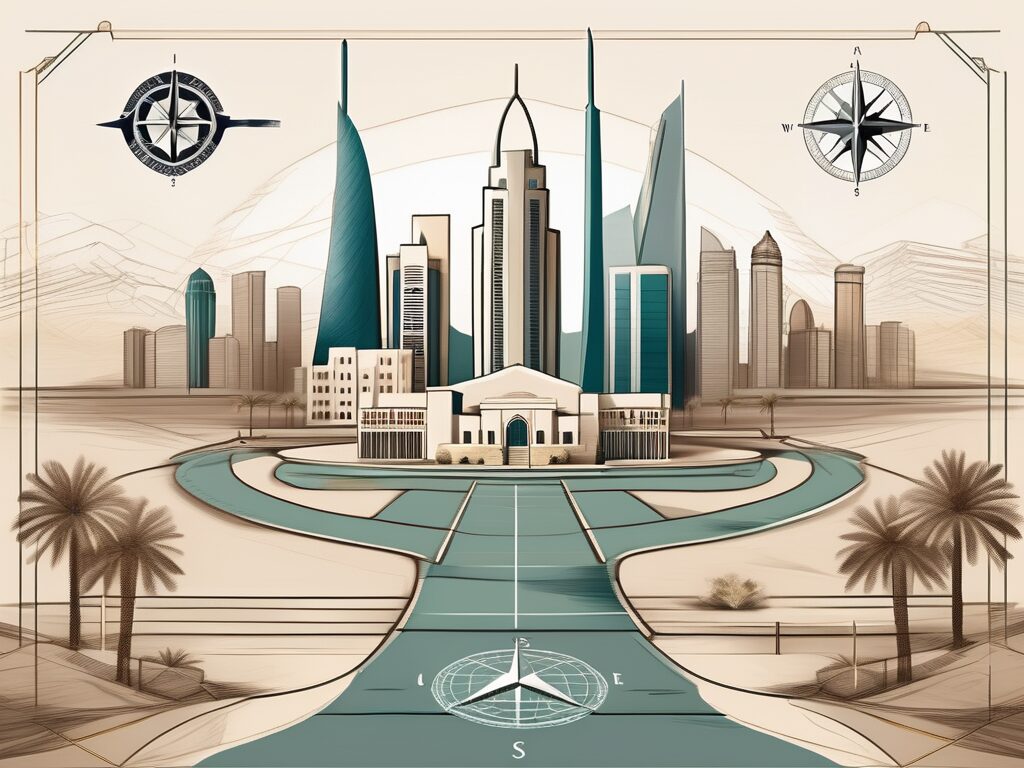Key Government Education Policies Shaping the UAE in 2025
The educational landscape in the United Arab Emirates (UAE) is undergoing transformative changes, driven by strategic government initiatives aimed at enhancing the quality and accessibility of education. This guide outlines the pivotal government policies that are instrumental in shaping the UAE’s education system, with a focus on academic standards, teaching philosophies, and global accreditation.
Vision 2025 National Agenda
The UAE government has established the Vision 2025 National Agenda, a comprehensive framework designed to elevate the education system to international standards. This initiative emphasizes the integration of cutting-edge technology and the promotion of innovative teaching methodologies.
A primary objective of this agenda is to ensure that UAE students achieve excellence in global assessments. This commitment reflects the government’s dedication to enhancing educational quality and aligning it with international benchmarks.
Furthermore, the Vision 2025 National Agenda aims to equip students with essential skills for future employment, incorporating critical thinking, creativity, and problem-solving into the curriculum.
Focus on STEM Education
Integral to the Vision 2025 National Agenda is a pronounced emphasis on Science, Technology, Engineering, and Mathematics (STEM) education. The government recognizes the vital role these disciplines play in fostering innovation and driving economic development.
STEM education in the UAE transcends mere knowledge acquisition; it aims to cultivate a scientific mindset among students, paralleling the approaches adopted by leading educational systems in the USA and UK, where STEM is viewed as a catalyst for progress.
Technological Integration in Education
A critical component of the Vision 2025 National Agenda is the integration of technology within educational frameworks. The UAE government is making substantial investments in digital infrastructure to support e-learning initiatives.
This strategy mirrors the ‘EdTech’ advancements seen in countries such as South Korea and Singapore. By embracing technology, the UAE is positioning its students to thrive in an increasingly digital world.
Moral Education Initiative
In 2017, the UAE government implemented the Moral Education Initiative across all educational institutions. This program is designed to instill ethical values and a sense of community among students, thereby reinforcing national identity.
The initiative encompasses four foundational pillars: character and morality; the individual and the community; civic studies; and cultural studies. This holistic approach ensures that students develop into well-rounded individuals who contribute positively to society.
Similar to character education initiatives in countries like Japan and Finland, the Moral Education Initiative exemplifies the UAE government’s commitment to comprehensive education.
Character and Morality Development
The first pillar of the Moral Education Initiative emphasizes character and morality, aiming to cultivate students who embody honesty, tolerance, and respect. This focus aligns with the cultural values and traditions of the UAE.
By prioritizing character and morality, the UAE mirrors the educational philosophies of countries such as New Zealand, where character education is integral to the curriculum.
Individual and Community Engagement
The second pillar of the Moral Education Initiative centers on the relationship between the individual and the community, fostering social responsibility among students. This is achieved through education on their rights and responsibilities as citizens.
This approach is akin to civic education programs in nations like Canada and Australia, where students are informed about their societal roles.
Conclusion
The proactive stance of the UAE government in formulating education policies has been crucial in shaping the nation’s educational framework. The Vision 2025 National Agenda and the Moral Education Initiative serve as prime examples of this commitment.
By concentrating on STEM education, technological integration, and moral development, the UAE is ensuring that its students are well-prepared for future challenges. This strategy aligns with global educational trends, positioning the UAE’s education system as a model for other nations.
As we progress further into the 21st century, it will be essential to monitor how these policies adapt to meet the evolving needs of students and the labor market. The unwavering commitment of the UAE government to education is a promising indicator for the future of the country’s educational landscape.
Advance Your Teaching Career with IPGCE
As the UAE continues to innovate its educational framework, it is imperative for educators to adapt to new standards and opportunities. For those seeking to enhance their qualifications and excel in the international education arena, the International Postgraduate Certificate in Education (iPGCE) offers a pathway to success. The iPGCE program addresses common challenges such as stringent qualification requirements, limited career advancement, professional isolation, and the necessity for a deeper understanding of global education systems. Embrace the flexibility of online learning and connect with a community that enhances your professional network. Take the next step in your teaching career and Join the UK’s #1 Teacher Training Course today.

